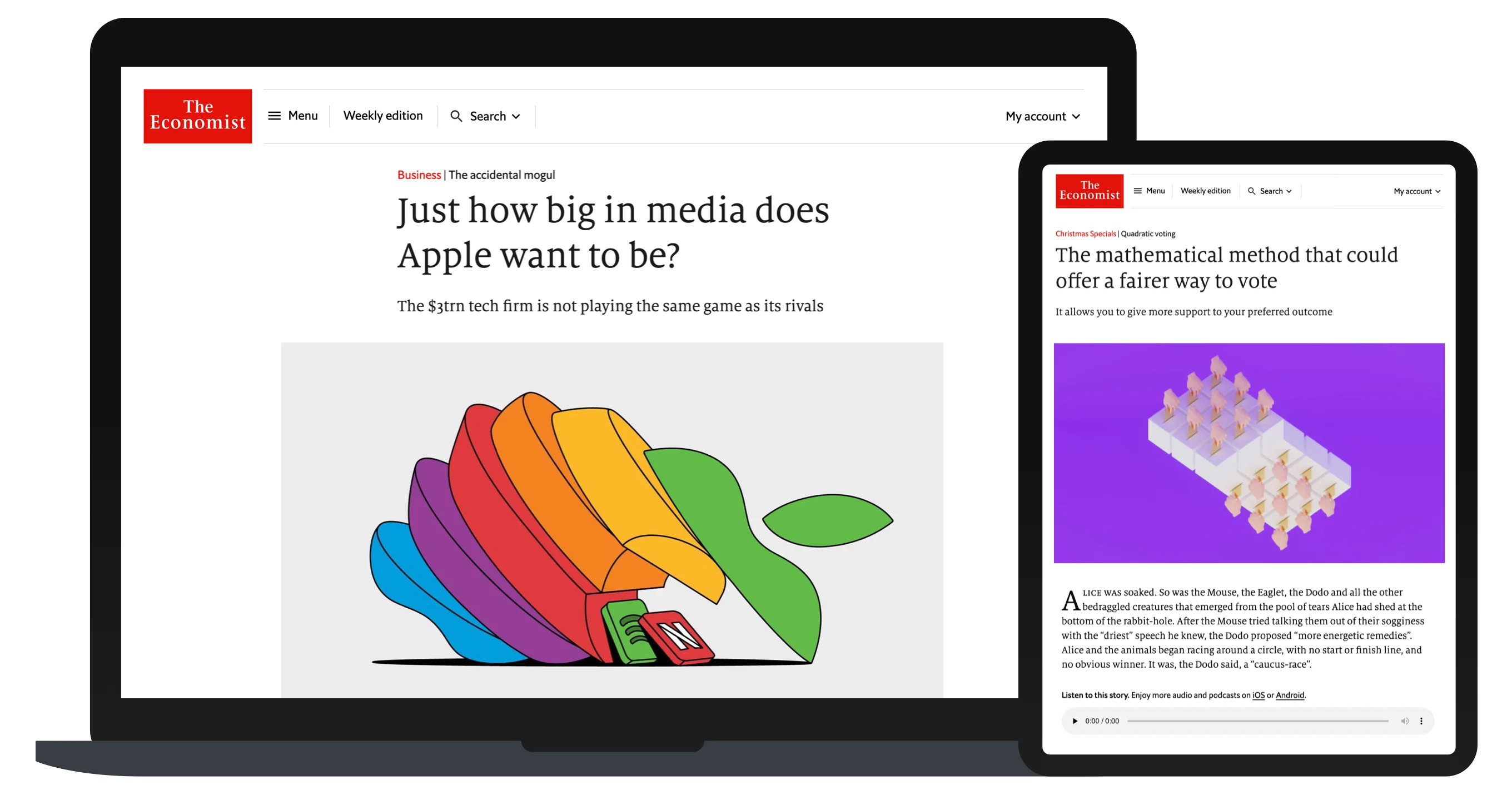PARA System and The Economist - interesting things

Hello, its the weekend before National Day here in Singapore and here are some updates of what I am reading. I am still a software engineer and I still read up on development news, I just want to write about other things that I find helpful and interesting.
The PARA Method
The PARA method is a guide for an organization system I came across in one of my news letters (I don’t remember which one, sorry I can’t give credits). It is a guide to build a personal system where we can hold information and retrieve it easily. I find it has many common traits to my personal organizational system, so I am happy to see a structured framework that I can recommend to my friends.
The PARA method is not a tool that you can adopt and use it straight away, but a guide for building one. It defines four distinct zones of digital information important to us; Projects, Area of Responsibilities, Resources and Archive.
Projects - series of tasks linked to a goal
Projects in the PARA method are a series of tasks linked to a specific goal, they are well-defined and achievable often with a deadline. In my personal system, I am using the Project group for the Things3 app to manage these tasks. I can set a deadline for each project and there is a cute little progression pie that tells me how far along I am with for each project. Examples here include my annual KPI for work promotions and packing list for my military reservist.
Area of Responsibilities - activities with a standard to be maintained
Area of Responsibilities are similar to Projects, but they do not have a well defined goal. In my personal system, I am using the Area group for the Things3 app to manage these tasks. They include repeating tasks such as “Weekly cleaning chores” under my “Home” area where I have a list of places I need to check or clean. Another example is my “Daily work chores” under my “Work” area where I fill up a list of daily checks to perform like reviewing pull requests and responding to calendar invites.
Resources - a topic or theme of ongoing interest
Right now I don’t have a perfect way of storing resources for long term usages. For now, I am just storing all of the links or videos I found under Things Project. I am trying out Bear to store long term notes ; maybe it will become my hub for storing links too? Let’s see how it will pan out.
Archive - inactive items from the other three categories
I do not have a place to store this right now, not sure how it will come in handy, but I will just wait until I can find a use case for it.
My System VS PARA
My personal system is working rather well for me so far, I mainly use Things3 and Apple Calendar because they sync across all my devices really well and Things3 has a UX that is incredible thoughtful. It is refreshing to look at the PARA method and find some potential gaps in my personal system. I will use it as a guide when I am refining my system in the future. And friends, if you don’t have an organization system, please try and build one, it helped me to clear my mind and offload all my dozens of random topics floating in my head at any point in time. More importantly, having a place to offload my tasks and random bits of information feels like it helped ease off a little bit of anxiety.

The Economist
The Economist is a news publication that focuses on international politics, finances, a bit of technology, a bit of climate change and a bit of everything else. Its articles ranges from short bits of updates about world news to analysis of topics like the limits of Artificial Intelligence.
With the level of general knowledge of a computer science undergrad-cum-working software engineer like myself, I find most of their articles easy to understand. For longer articles, they often provide a full context like in the Ukraine-Russia conflicts, but a lot of the shorter articles assumed the reader has some general understanding of the topic like with Pelosi’s visit to Taiwan.
But in general, I think it is a good news paper for young adults to read and easily understand the daily affairs and foreign politics. It is not a replacement for local news papers which talks about important local and regional developments, but a supplement that makes up for the gaps in international news.

Follow me on my Telegram Channel @devstuff for daily reads about software engineering and web development.
